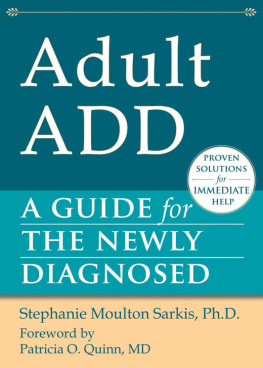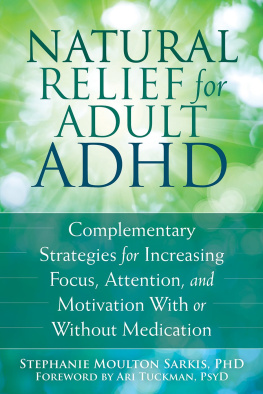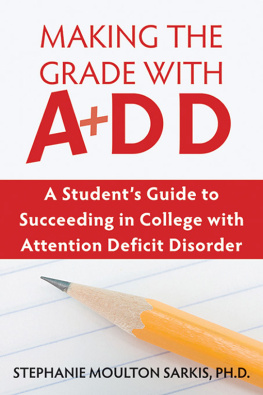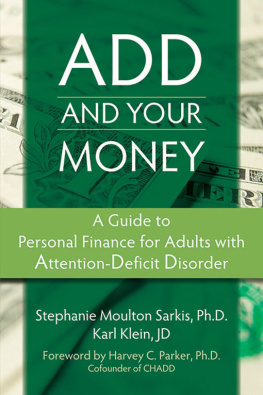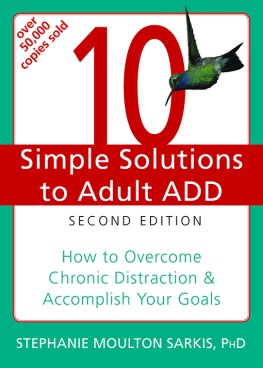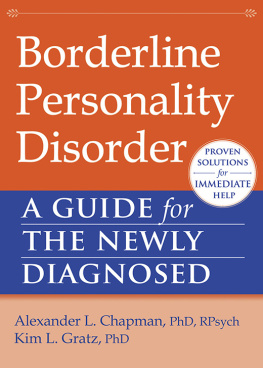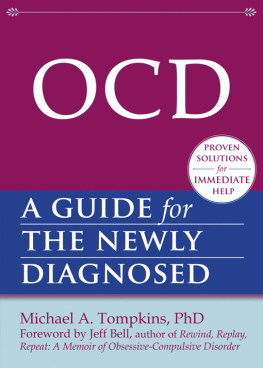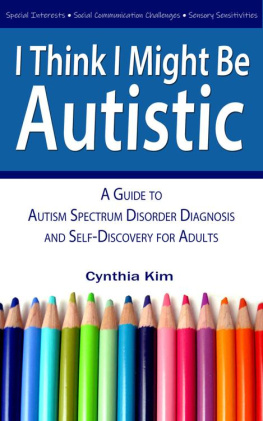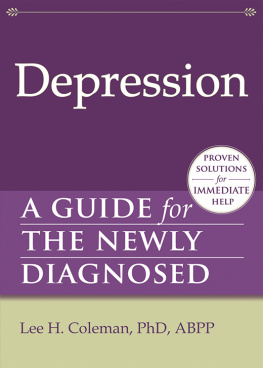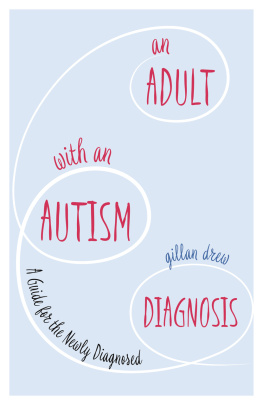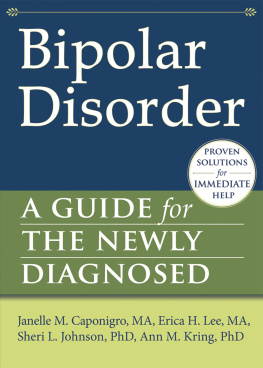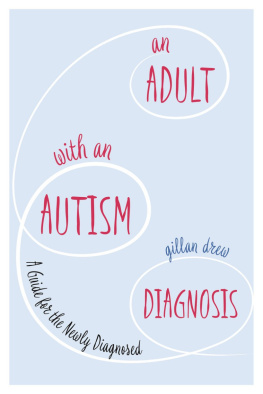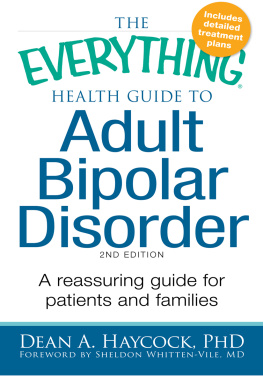Acknowledgments
Thank you to my patients and clients, from whom I have learned so much. Thank you to my editors at New Harbinger: Melissa Kirk, Jess Beebe, and Elisabeth Beller. Thank you also to Jesse Burson, Earlita Chenault, Adia Colar, and Julia Kent at New Harbinger. Thank you to Patricia O. Quinn, MD; Kelly Aissen, Ph.D.; Lori Burack, LCSW; Charles Downer, Ph.D.; Lara Honos-Webb, Ph.D.; Stephanie Hunter-Banks, Pharm.D.; Irene Kerzhnerman, Ph.D.; Jane Marinelli, ARNP; Roberto Olivardia, Ph.D.; Nancy Ratey, M.Ed.; Richard Rubin, MD; Elias Sarkis, MD; Ari Tuckman, Psy.D., and Sharon Wigal, Ph.D. for their help and contributions. Thank you also to William Moulton, Janice Moulton, Claude Moulton, Christine Whitney, Charles Gates Kmet, Eric Rogell, Katie Degnan, Denise Gauthier, Paul Gauthier, Toby Sarkis, and Lucy Sarkis for their support.
Stephanie Moulton Sarkis, Ph.D., is adjunct assistant professor at Florida Atlantic University in Boca Raton, FL, and author of 10 Simple Solutions to Adult ADD, Making the Grade with ADD, and ADD and Your Money. She is a nationally certified counselor and a licensed mental health counselor, and has a private counseling practice where she specializes in ADD/ADHD counseling and coaching. Sarkis won an American Psychological Association Outstanding Dissertation Award in 2001, and has made media appearances on CNNs Health Minute, Fox News, ABC News, Sirius Satellite Radio, First Business Television, and numerous other networks and stations. Visit her online at www.stephaniesarkis.com.
Foreword writer Patricia O. Quinn., MD, is a developmental pediatrician in Washington, DC. A graduate of Georgetown University Medical School, she specializes in child development and psychopharmacology. She is author of twenty books on attention deficit/hyperactivity disorder for children, adults, and professionals, including the award-winning Attention, Girls!, and cofounded and directs the National Center for Girls and Women with ADHD.
Chapter 1

Overview of ADD
Since youve been diagnosed with ADD, you may remember even more that you always felt like you didnt fit in. You may have felt this way even from the time you were a small child. You always seemed to be one or two steps behind everyone else. In grade school you never turned your work in on time. When you opened your desk, papers would come flying out. Your report cards had teacher comments such as doesnt work to potential or talks out of turn. When you played games with your friends, you would forget whose turn it was next. You would interrupt your friends and act way sillier than they didwhich led to you losing friends.
As you got older, you continued to struggle through school and found yourself skipping classes and maybe even dropping out. People still tell you that you arent working to your potential. Youve had a string of failed relationships, mainly due to your impulsive spending and difficulties staying monogamous. You drink more than you should, because it helps your brain slow down and it helps you feel more comfortable in social situations. You also have gotten quite a few speeding tickets and may have even had your license suspended because you forgot to pay the fines. Does this sound familiar? You arent the only one who has experienced issues like these. In the rest of this chapter, you will learn more about attention deficit disorder and how it affects your life and the lives of millions of others just like you.
What Is ADD?
Attention deficit disorder (ADD) is a genetic and biological disorder that affects 4.4 percent of the U.S. population (Kessler et al. 2005). ADD is passed on through the genes you inherit from your parents. If you have ADD, there is a 75 percent chance that you inherited ADD genes from at least one of your parents (Rietveld et al. 2004).
There is nothing you did (or didnt do) to get ADD. You were born with the genes for it. Likewise, if your child has ADD, there is nothing you did to cause it. (Interestingly, many adults find out they have ADD after their children have been diagnosed with it. They realize their childs behavior is eerily similar to theirs when they were young.)
Scientists have identified several genes that are associated with ADD (Guan et al. 2009). There are also hundreds of gene variations that have been found in children who have ADD. These gene variations are not found in other children (Elia et al. 2010). Considering the recent advances in science, it is expected that more ADD-related genes and gene variations will be identified every year.
Although some people may doubt the validity of ADD, it is a serious and very real disorder. Adults with ADD have a significantly lower socioeconomic status, a lower level of academic achievement, and higher medical costs than their non-ADD peers (Kleinman et al. 2009; Bernfort, Nordfeldt, and Persson 2008). Adults with ADD also engage in more high-risk behaviors (such as gambling), have a higher rate of substance abuse, and have more car accidents (Breyer et al. 2009; Wilens and Upadhyaya 2007). They also have a higher rate of unplanned pregnancies and sexually transmitted diseases compared to people without ADD (Flory et al. 2006; Barkley et al. 2005).
Adults with ADD are also more likely to be unemployed. One study found that only 24 percent of ADD adults were employed, compared to 79 percent of non-ADD adults. This rate of employment improved with treatment for ADD symptoms (Halmey et al. 2009).
ADD Terms and Types
You have probably heard the terms ADD and ADHD both used to describe a pattern of inattention and impulsivity. The proper clinical term is attention deficit hyperactivity disorder (ADHD) even if you are just inattentive and not hyperactive. However, the term ADD is more frequently used by the general public. Therefore, in the remainder of the book, I will use the term ADD.
The guide or book that lists the official symptoms of ADD is called the Diagnostic and Statistical Manual of Mental Disorders (DSM). This manual is published by the American Psychiatric Association and is the gold standard that clinicians use when diagnosing ADD. In the most recent version of the DSM, the DSM-IV-TR (APA [American Psychiatric Association] 2000), the term ADHD is used. The symptoms and other diagnostic criteria have, like the title of the disorder, changed over the years. (You will learn more about the history of ADD later in this chapter.)
According to the current diagnostic criteria, there are three subtypes of ADD: inattentive, hyperactive/impulsive, and combined (APA 2000).
Symptoms of the Inattentive Subtype
To meet the criteria for the inattentive subtype of ADD, you must have at least six out of nine inattention symptoms:
- Distractibility
- Disorganization
- Difficulty paying attention to detail; making careless mistakes
- Forgetfulness
- Difficulty focusing or paying attention during tasks
- Difficulty following through on instructions and failing to finish tasks
- Avoiding tasks that require sustained mental effort
- Losing items often
- Not appearing to listen when spoken to
Symptoms of the Hyperactive/Impulsive Subtype
To meet the criteria for the hyperactive/impulsive subtype, you must have at least six out of nine hyperactive/impulsive symptoms:
- A feeling of being on the go or acting as if driven by a motor
- Fidgetiness or squirming in seat
- Difficulty waiting turns or standing in line

